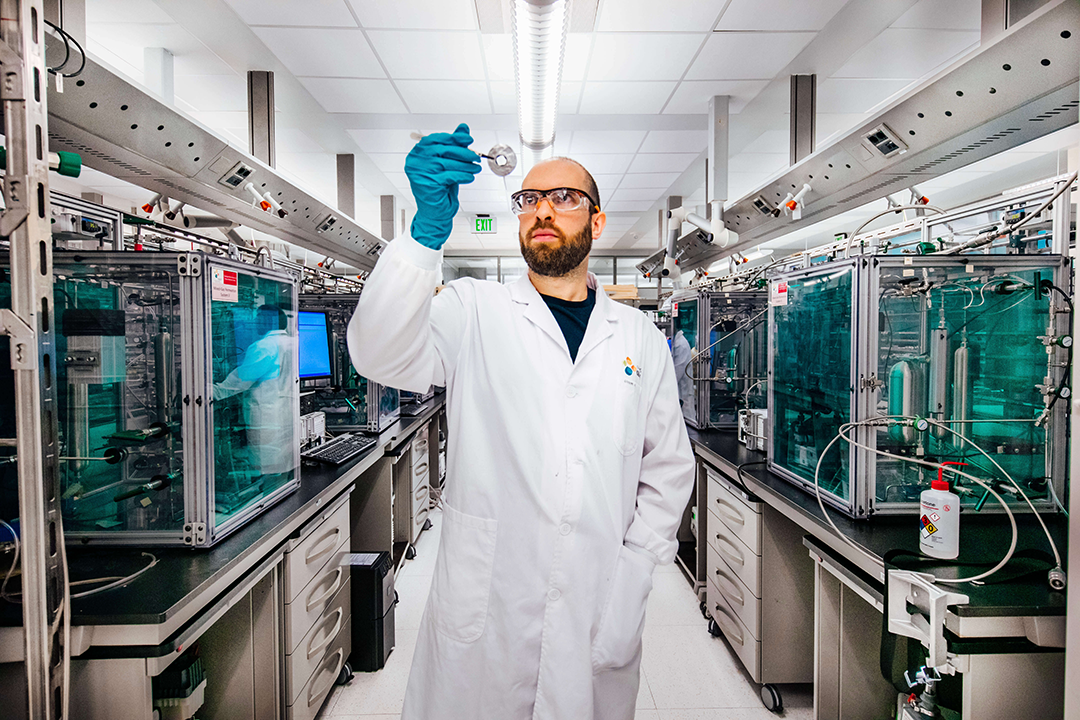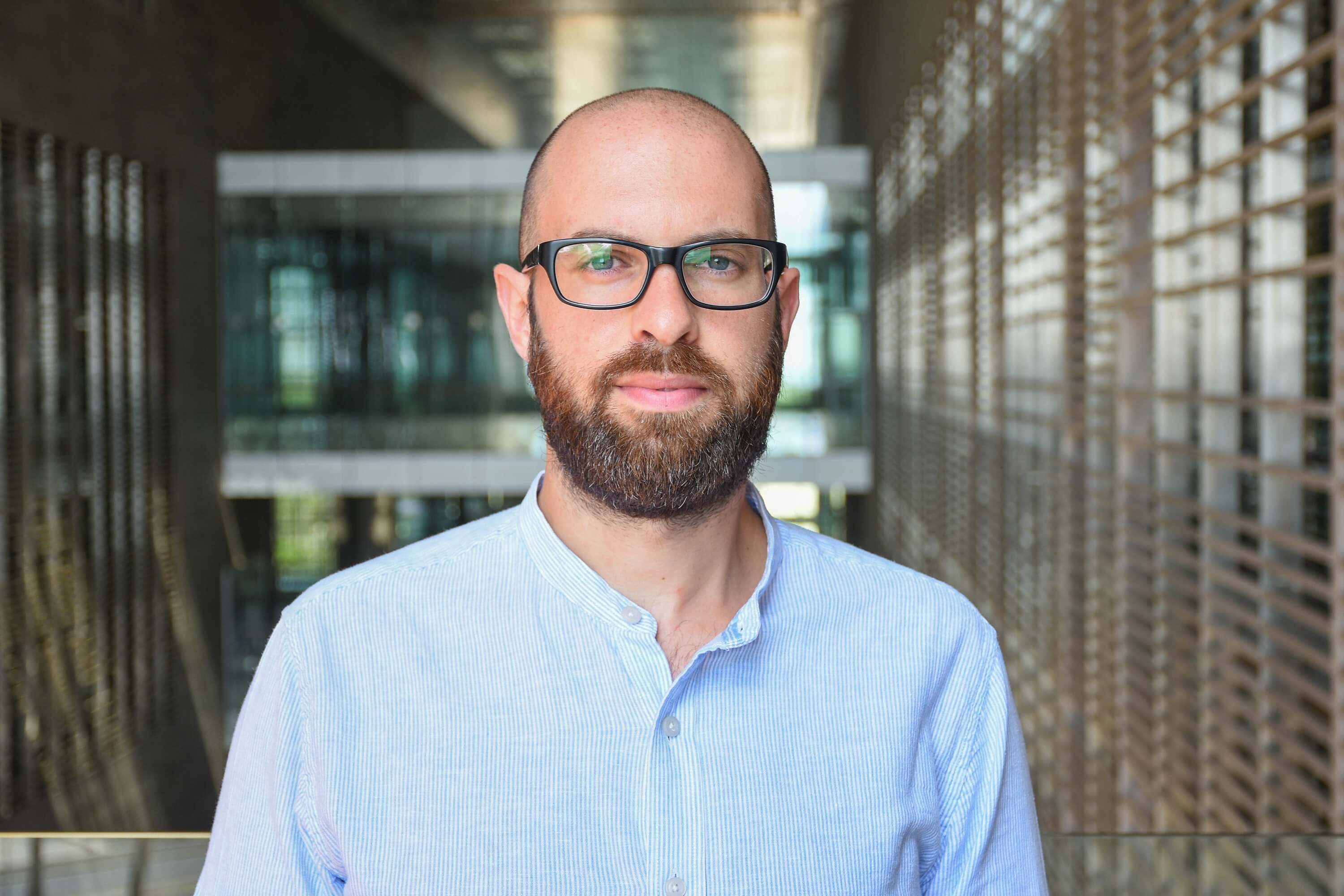Genduso wins NAMS Young Membrane Scientist Award

Giuseppe Genduso inspecting a polymer film for gas separation membranes at the AMPM center lab. Photo credit: Anastasia Khrenova.
"If you want to make a difference, you have to go for technologies that will make a difference," KAUST research scientist Giuseppe Genduso likes to advise graduate students.
Genduso is the recent recipient of the prestigious 2020 NAMS Young Membrane Scientist Awards, selected among five early-career researchers in membrane science and technology, and he has indeed chosen an influential field.
Genduso conducts his research as part of the KAUST Advanced Membranes & Porous Materials Center, under the leadership of Professor Ingo Pinnau. A native of Italy, he earned his master's and bachelor's degrees at the University of Palermo. He later completed his Ph.D. at KU Leuven in Belgium.
His work focuses on understanding how polymer membrane materials behave. Genduso examines the membrane materials' chemical structures to better predict how the membrane will perform when separating a variety of fluid mixtures.
Lately, his research explores the fundamentals underpinning the sorption and diffusion of gases in advanced polymer materials for membranes. These works have been pursued in extremely accurate sorption laboratory units constructed in the AMPM's Center laboratory.
Pursuing impactful research
"Membrane science will really make a difference in the next twenty to thirty years," Genduso explained.
As the chemical industry is increasingly addressing new challenges and megatrends facing the sector, including increasingly stringent environmental regulations, membrane technology is getting established as an innovative method for extremely energy-efficient fluid separations. Membranes could, for example, allow for the drastic reduction of greenhouse gas emissions produced by the chemical and petrochemical industry.
"I strongly advise the new generation [of scientists] not to be passive players in the chemical engineering world, but to be active in trying to develop new sustainable technologies," said Genduso.

Giuseppe Genduso is a research scientist in the Advanced Membranes and Porous Materials center under Professor Ingo Pinnau.
As part of the selection process for the NAMS Young Membrane Scientist Awards, nominees must submit an abstract, along with a curriculum; details of future research plans; and a letter of nomination from a senior member of NAMS. The award is open to all membrane scientists within five years after completing their Ph.D. degree including postdocs, faculty, and industrial positions.
"It was an incredible honor to be selected among the five people awarded worldwide from the North American Membrane Society," Genduso said.
His future research plans include the development of membrane platforms to facilitate a group of similar separations instead of having a membrane for each type of separation.
"We have some cases where membrane technology is being massively implemented successfully. There are so many other opportunities, and we should go fast with that. We can make a big difference," he said.
An ideal research environment
Genduso credits the research-optimized environment at KAUST for providing him with an ideal setting to pursue his ambitious career goals. "The environment is just perfect for doing research. It's an amazing experience," he said.
Benefiting from the vast experience and expertise of Professor Ingo Pinnau is also hugely important for Genduso. "I came to KAUST because I was thrilled to learn from Professor Pinnau, an important figure in the field as demonstrated by his appointment as a 2020 Fellow of the North American Membrane Society (NAMS)."
As the founding Director of the Advanced Membranes and Porous Materials (AMPM) Center, Pinnau has created a collaborative research environment where group members enjoy the freedom to discuss and propose ideas. Many of those ideas either come from Professor Pinnau's thirty years of experience or ultimately benefit from his in-depth perspective.
"In the end, it's a process where everyone is learning. We enrich ourselves from a scientific point of view. Ideas are discussed, we transmit our findings to the group members, and we move together towards the next steps."
Related stories
- KAUST scientists win prestigious Gauss Award for supercomputing excellence
- Derya Baran first to represent Saudi institution in Global Young Academy
-
Pinnau named 2020 NAMS fellow

